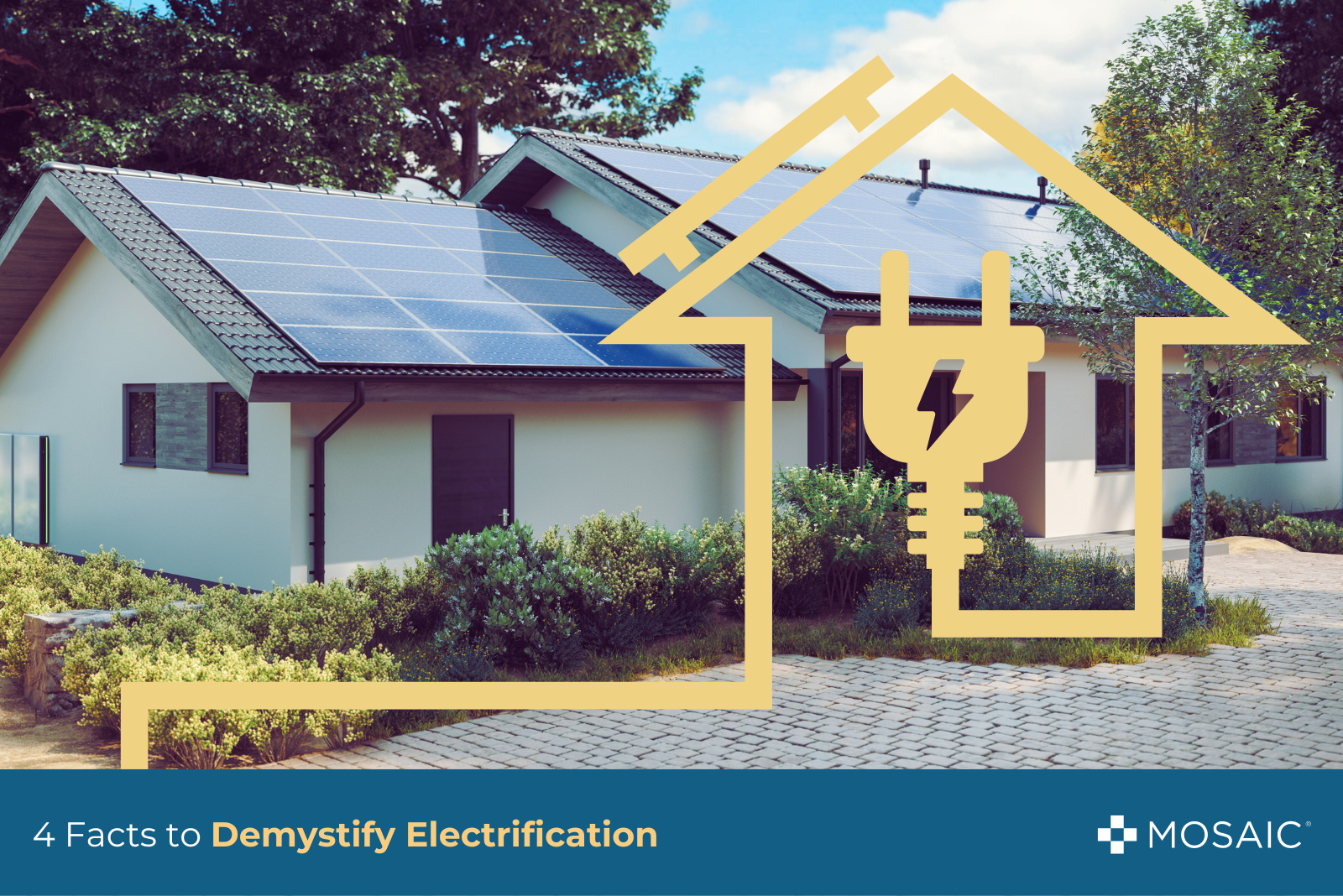Electric products are gaining momentum as more efficient, eco-friendly and cost-saving alternatives to gas systems. Sadly, common misconceptions still persist around electrification — one being that electrification will cost homeowners money without saving them money in the long-run.
The truth is electrification can save homeowners $1,050 to $2,585 per year on energy bills yearly. And that's without accounting for fewer repair costs due to higher-quality systems, not to mention the increased comfort and health benefits of going electric. It's up to contractors and other clean energy professionals to explain the benefits of electrification to homeowners. Here are four facts to get you started!
1. Electrification is a “journey”
Homeowners are often overwhelmed by the process of going electric. New appliances, new heating and cooling systems, solar panels, EV chargers: the possibilities seem endless (and expensive.)
Contractors can help by explaining that electrification is a journey. Homeowners don’t have to electrify their homes in one go. Often homeowners prefer to start small. 1 in 3 homeowners purchase electric appliances, such as a stove or clothes dryer, as their first electric product in their home. These purchases are usually out of necessity, but lead to bigger projects, once the energy-efficiency and cost savings are visible.
2. Electrification saves money
It’s true that electric products may have a higher upfront cost than traditional products. Fortunately, their long-term cost savings make up for it. Higher-quality products reduce energy waste which lowers utility bills. Factor in less maintenance costs and the longevity of electric products — and the economic benefits are clear.
Another bonus? Electric products often return a large ROI to homeowners, increasing the value of their homes. For example, HVAC electrification can provide an ROI of 103%!
Upgrades like electric products can also provide a competitive edge in the tight housing market. According to the National Association of Home Builders (NAHB), 9 out of 10 prospective homeowners report they’d choose a more expensive home with upgrades over a cheaper home without them.
3. Electrification can improve daily life
The benefits of electrification are more than economic. The increased performance of electric products maintains an even home temperature, brings heat to faucets faster and makes the home a more comfortable and well-functioning space.
Electric products, particularly solar paired with solar battery storage, can help keep the lights on through power outages and harsh weather events. This increases home resiliency and helps put homeowners at ease throughout the increasing number of weather events. Clean energy systems also improve the air quality in homes, reducing respiratory and cardiovascular illnesses, and decreasing allergies.
4. Electrification is getting less expensive
The Inflation Reduction Act is making it less expensive to electrify everything. Homeowners can use tools like the Rewiring America calculator to learn more about which incentives they may qualify for. Although the tax specifics should be handled by a tax advisor, contractors play a role in spreading awareness about the IRA legislation — allowing homeowners to comfortably take on more, and bigger, projects.
The state rebates coming this year will only amplify these benefits — contractors should advocate and watch for their state’s roll out, so they can communicate the possible additional incentives to homeowners.
The ability of solar panels to lock in utility bills over a period of time, may also make electrification the cheaper option, especially in the long term as traditional utility rates continue to rise. Homeowners who install solar panels today can benefit from lower utility bills throughout the lifetime of their system, around 20 years. With the fluctuations in utility charges, this can bring better monthly consistency and peace of mind.
Financing applied for and processed through the Mosaic platform is originated by Solar Mosaic LLC or one of its lending/financing partners. Equal Housing Lender
